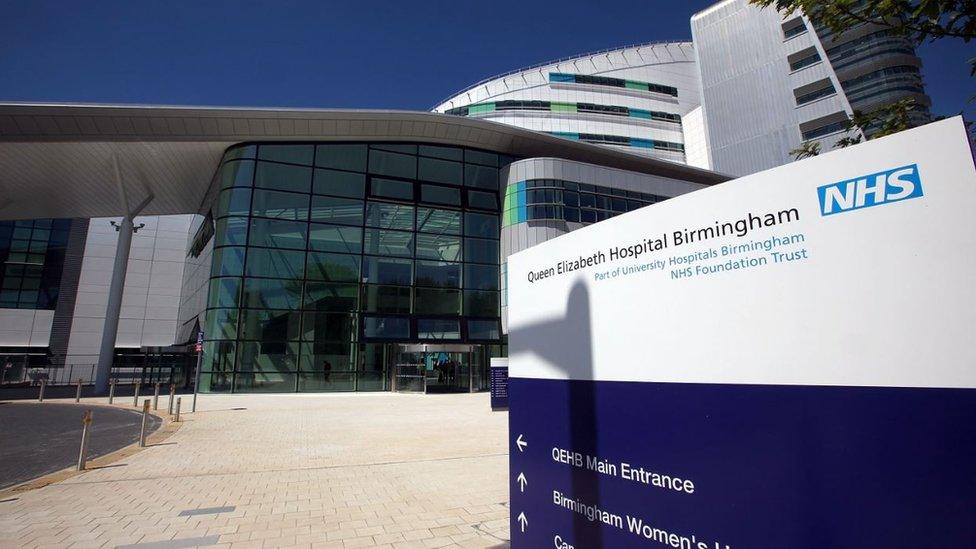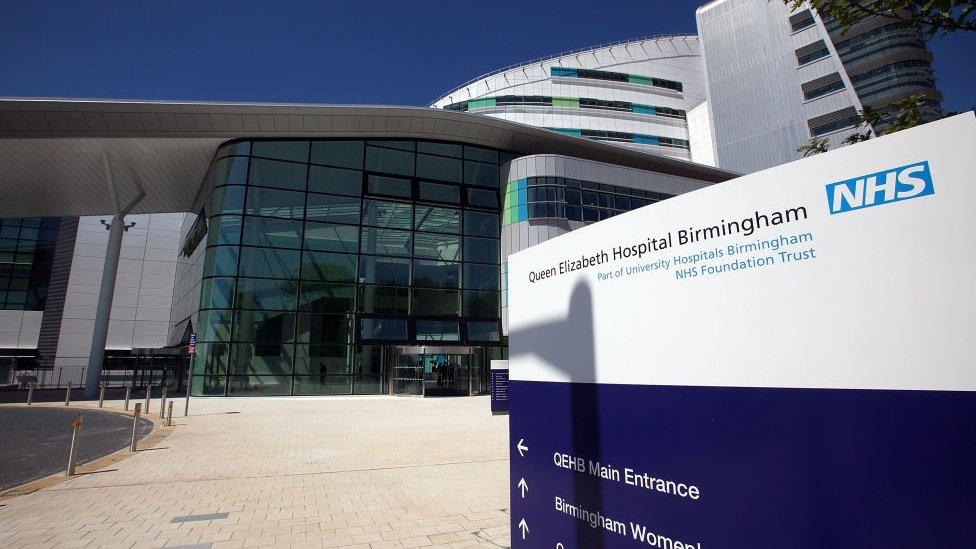Covid: Queen Elizabeth Hospital Birmingham postpones operations
- Published

The Queen Elizabeth Hospital said it had seen a "significant increase in the number of very sick patients"
A hospital has postponed all its non-emergency procedures because of an increase in the number of Covid-19 patients.
The trust that runs Birmingham's Queen Elizabeth Hospital says across its sites it is treating 389 patients who have tested positive, with 36 in intensive care.
That compares with 60 in-patients a month ago, and just five ICU patients.
Cancer treatment and life-saving care were said to remain a "priority".
University Hospitals Birmingham NHS Trust is in charge of Heartlands, Good Hope and Solihull hospitals.
Figures have not been made available site by site, although Solihull is Covid clear, according to the trust.
It said the postponement situation was likely to continue until the end of November, adding patients who were due to undergo surgery were being contacted to arrange new dates.
Gynaecology procedures at Sutton Coldfield's Good Hope have also been paused.
The trust, which is the largest in England, has apologised and says it understands "affected patients will be distressed and upset with this decision".
During the first peak, in April, the trust had up to 708 Covid-19 in-patients, with 134 in intensive care beds.
Before the current England lockdown, Birmingham had already been under extra coronavirus restrictions because of the high rate of infections there and was placed under tier two restrictions on 14 October.

Follow BBC West Midlands on Facebook, external, Twitter, external and Instagram, external. Send your story ideas to: newsonline.westmidlands@bbc.co.uk, external
- Published14 October 2020
